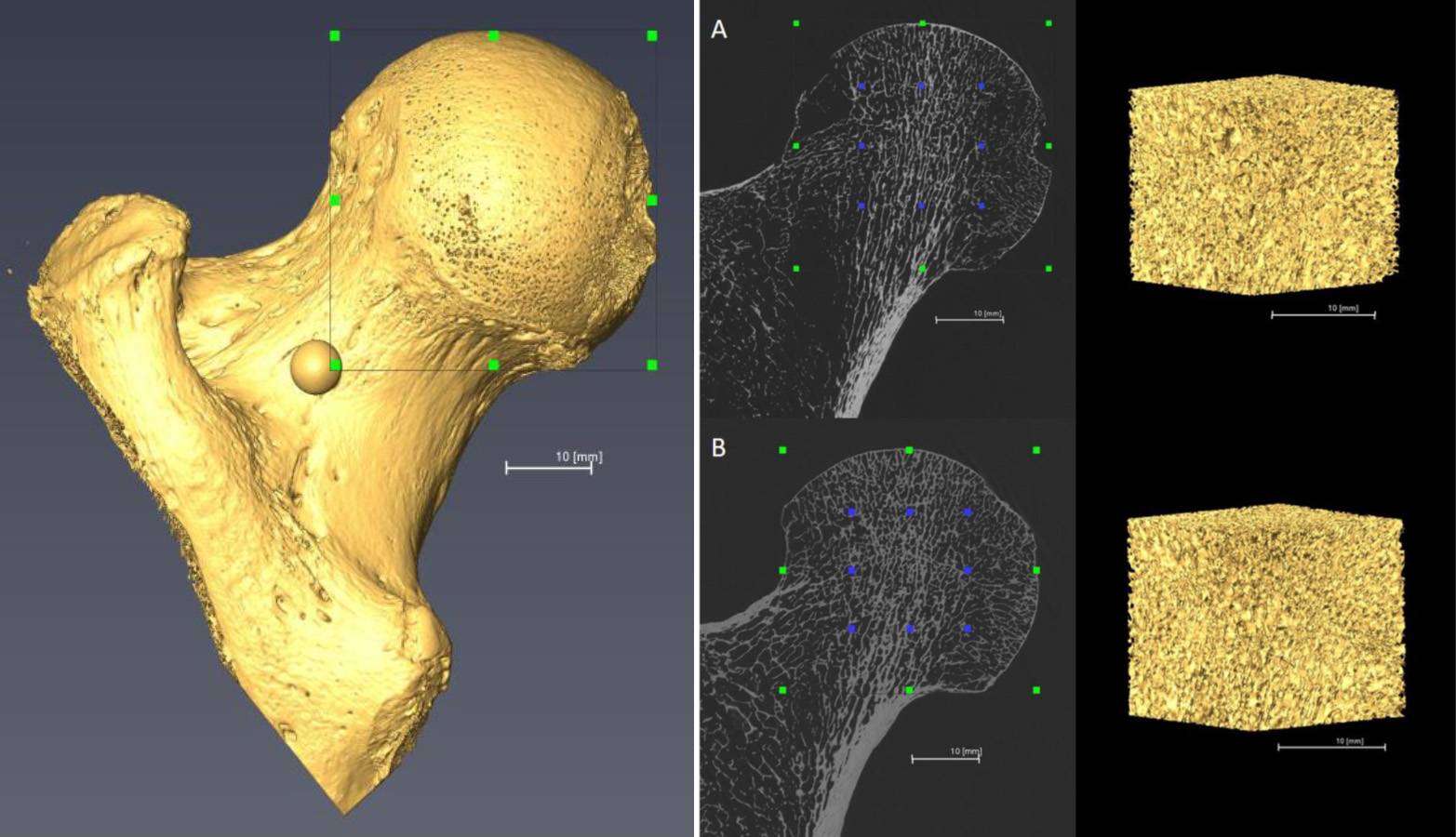Texas State research examines bones to determine body mass of unidentified human remains
Jayme Blaschke | November 12, 2020

The Forensic Anthropology Center at Texas State University (FACTS) has received a National Institute of Justice grant to support research into estimating the body mass of human remains.
The two-year, $680,000 grant will support the project, "Body mass estimation using bone micro- and macro-structure: a practical approach using CT imaging and computer analysis," overseen by Danny Wescott, a professor in the Department of Anthropology and director of FACTS, and Deborah Cunningham, a lecturer in the Department of Anthropology.
When developing a biological profile of unidentified human remains, forensic anthropologists routinely estimate sex, age, ancestry and stature. However, body mass is generally not included in the biological profile due to the lack of methods for accurately estimating it from skeletal remains, especially for obese individuals. As the prevalence of obesity increases so will the chances of encountering obese individuals in death investigations. Therefore, the estimation of body mass may provide greater details for matching unknown and missing persons' profiles than other biological components.
The FACTS research will enhance death investigations of unidentified human remains by developing a novel method for accurate and reliable estimation of body mass category from human skeletal remains and a user-friendly cross-platform software package (Forensic Body Mass Estimation Toolkit) that can be used by forensic anthropologists working in the United States. The project involves combining joint size, trabecular bone structure, bone shaft cross-sectional properties and whole bone shape focusing on differences associated with obesity's effect on weight-bearing bones of the skeleton.
The study will either demonstrate a reliable and accurate relationship between skeletal features and body mass or demonstrate that no such relationship exists and that radically different approaches (non-skeletal) to body mass estimation will be required.
Texas State will collaborate with Johns Hopkins University on the project. FACTS has the equipment, skeletal samples and the technical knowledge required to scan, reconstruct and archive such an ambitious sample of human skeletons. Researchers at Johns Hopkins have the image processing and trabecular bone analysis software in place to carry out the analysis of the data generated by Texas State.
Share this article
For more information, contact University Communications:Jayme Blaschke, 512-245-2555 Sandy Pantlik, 512-245-2922 |